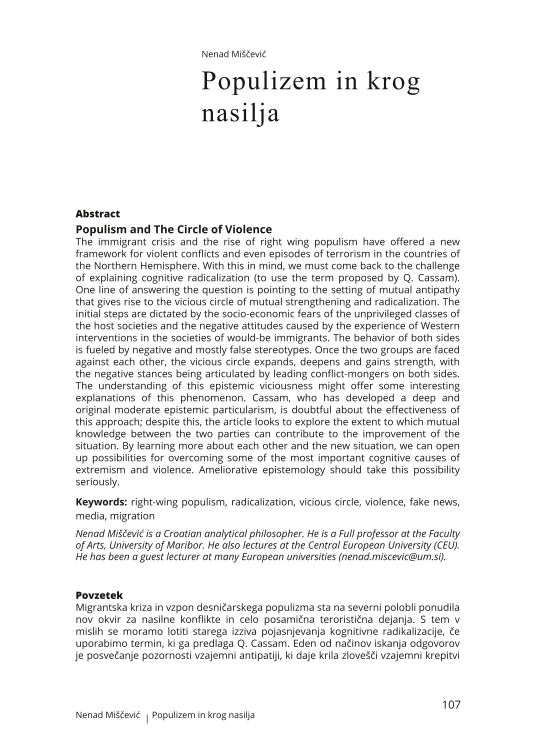The immigrant crisis and the rise of right wing populism have offered a new framework for violent conflicts and even episodes of terrorism in the countries of the Northern Hemisphere. With this in mind, we must come back to the challenge of explaining cognitive radicalization (to use the term proposed by Q. Cassam). One line of answering the question is pointing to the setting of mutual antipathy that gives rise to the vicious circle of mutual strengthening and radicalization. The initial steps are dictated by the socioeconomic fears of the unprivileged classes of the host societies and the negative attitudes caused by the experience of Western interventions in the societies of wouldbe immigrants. The behavior of both sides is fueled by negative and mostly false stereotypes. Once the two groups are faced against each other, the vicious circle expands, deepens and gains strength, with the negative stances being articulated by leading conflictmongers on both sides. The understanding of this epistemic viciousness might offer some interesting explanations of this phenomenon. Cassam, who has developed a deep and original moderate epistemic particularism, is doubtful about the effectiveness of this approach; despite this, the article looks to explore the extent to which mutual knowledge between the two parties can contribute to the improvement of the situation. By learning more about each other and the new situation, we can open up possibilities for overcoming some of the most important cognitive causes of extremism and violence. Ameliorative epistemology should take this possibility seriously.




